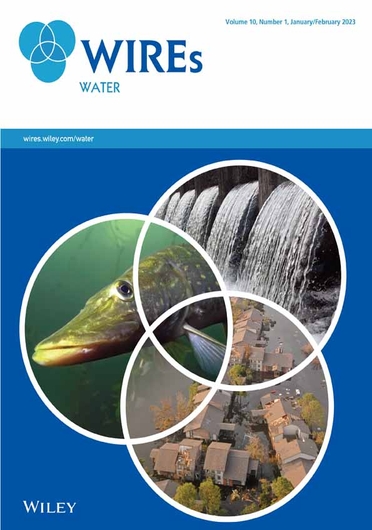Hybrid governance, environmental justice, and hydropower development in the Mekong transboundary commons
IF 5.8
1区 地球科学
Q1 ENVIRONMENTAL SCIENCES
引用次数: 0
Abstract
The transboundary Mekong River spans China, Myanmar, Laos, Thailand, Cambodia, and Vietnam, and provides critical ecosystem services that support millions of people across the river basin. However, the exploitation of its water resources for state‐led development, especially in the realm of hydropower development, not only threatens the livelihoods and food security of communities across the river basin, but also reveal the challenges of governing the Mekong River as a transboundary commons. In focusing on how environmental injustice is produced through hydropower development and the power dynamics within hybrid governance arrangements in the Mekong River Basin, this paper seeks to examine how a grounded perspective of environmental justice may be understood in this context by linkages between the principles of environmental justice and the Mekong literature in three ways. First, the production of, and challenges against distributive injustice in the Mekong River Basin must engage with a strong tradition of scalar analysis in the field of transboundary water governance, particularly in understanding how a politics of scale underlies contestations around the Mekong River. Second, the principle of justice as recognition can be situated within a body of literature that interrogates the politics of knowledge that runs through Mekong water governance, although the co‐production of knowledge types must be acknowledged. Finally, a recent body of literature questioning the legality of dam‐building and public participation around Mekong hydropower dams are closely tied to issues of procedural justice, and reveal the importance of recognizing plurality in ideas around transparency and accountability.

湄公河跨界公地的混合治理、环境正义和水电开发
跨界的湄公河横跨中国、缅甸、老挝、泰国、柬埔寨和越南,提供重要的生态系统服务,为流域内数百万人提供支持。然而,在国家主导的发展中,特别是在水电开发领域,对其水资源的开发不仅威胁到整个流域社区的生计和粮食安全,而且还揭示了将湄公河作为跨界公地进行治理的挑战。在关注湄公河流域水电开发和混合治理安排中的权力动态如何产生环境不公正的过程中,本文试图通过环境正义原则与湄公河文献之间的联系,以三种方式研究如何在这种背景下理解环境正义的基础观点。首先,湄公河流域分配不公的产生和挑战必须与跨界水治理领域的标量分析的强大传统相结合,特别是在理解规模政治如何成为湄公河周围争议的基础时。其次,尽管必须承认知识类型的共同生产,但作为承认的正义原则可以置于质疑贯穿湄公河水资源治理的知识政治的文献中。最后,最近一篇质疑大坝建设合法性和公众参与湄公河水电大坝的文献与程序正义问题密切相关,并揭示了在透明度和问责制方面认识到多元化的重要性。
本文章由计算机程序翻译,如有差异,请以英文原文为准。
求助全文
约1分钟内获得全文
求助全文
来源期刊

Wiley Interdisciplinary Reviews: Water
Environmental Science-Ecology
CiteScore
16.60
自引率
3.70%
发文量
56
期刊介绍:
The WIREs series is truly unique, blending the best aspects of encyclopedic reference works and review journals into a dynamic online format. These remarkable resources foster a research culture that transcends disciplinary boundaries, all while upholding the utmost scientific and presentation excellence. However, they go beyond traditional publications and are, in essence, ever-evolving databases of the latest cutting-edge reviews.
 求助内容:
求助内容: 应助结果提醒方式:
应助结果提醒方式:


